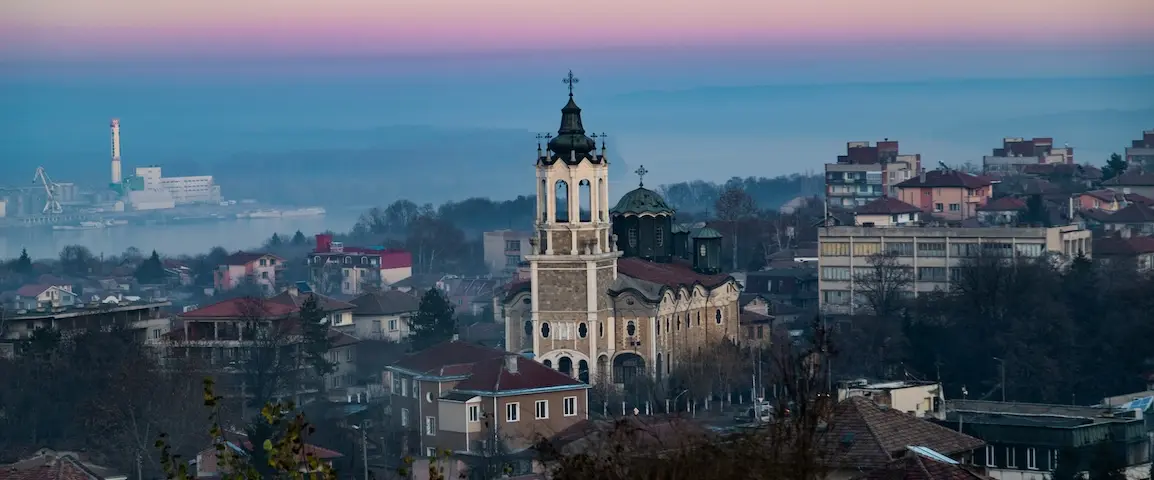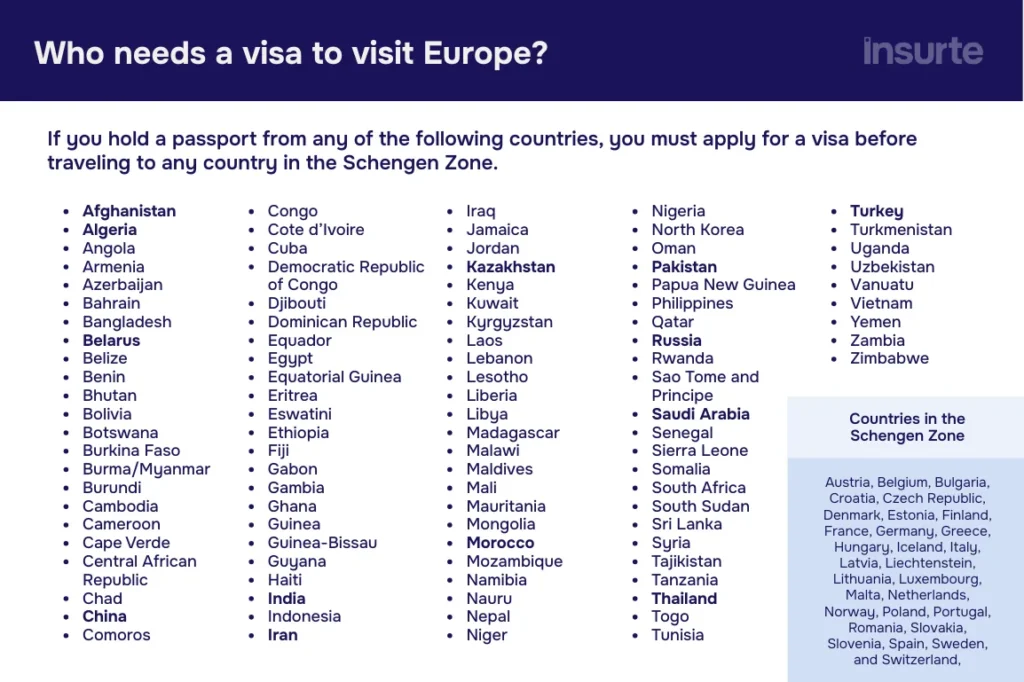Home > Bulgaria Visas: A Full Guide

Bulgaria Visas: A Full Guide
Whether you're traveling to Bulgaria for tourism, business, study, or other reasons, navigating the visa application process can seem complicated.
That’s why we’ve created a comprehensive guide, breaking down everything you need to know to ensure a smooth and straightforward visa application experience for your upcoming trip to Bulgaria.
From the cathedrals in Sofia to the ancient ruins of Nessebar, we hope you enjoy your journey to Bulgaria – wherever it may take you.
Who needs a visa for Bulgaria
Whether you need a visa depends on the reason for and length of your stay, as well as your nationality.
If you're not a citizen of a visa-exempt country, such as China or India, you will need a visa in order to travel to Bulgaria.

Do US citizens need a visa for Bulgaria?
For short visits of up to 90 days, US citizens do not need a visa to enter Bulgaria for tourism or business trip purposes. However, if your plans include staying longer or working or studying, a visa will likely be required.
Who doesn’t need a visa to visit Bulgaria?
Citizens of the Schengen area, EU, and EEA member countries do not need a visa to travel to Bulgaria.
How long can you stay in Bulgaria without a visa?
Additionally, nationals of several countries with visa waiver agreements, such as Canada, Australia, and the United States, can visit visa-free for up to 90 days within a 180-day period. If they would like to stay longer than 90 days, a visa is required.
How to apply for a Bulgarian visa
The application process for a Bulgarian visa depends on your reason for visiting, as well as how long you’d like to stay.
Once you determine the appropriate visa type, you’ll need to gather the required documents and submit your application to the nearest Bulgarian consulate or embassy.
Can I apply for a Bulgaria visa online?
In the coming years, all Schengen visa applications (which includes Bulgaria) will be done online through a legitimate and secure platform called EU VAP. While not accessible yet, it’s expected to be fully operational by 2030.
Is getting a Bulgaria visa difficult?
For short-term visits, like tourism or business, Bulgaria visas are relatively straightforward as long as you meet the requirements. Long-term visas or special permits, such as work or study visas, may require more detailed documentation.
What is the rejection rate for Bulgarian visas?
In 2024, 9.4% of all Bulgarian Schengen visa applications were denied (for short stays, fewer than 90 days).
That said, rejection rates are really not a good indicator as to whether or not your application will be approved or denied.
While the data is accurate, these averages are global and very nuanced. Rejection rates aren't static numbers - they change frequently, sometimes even weekly.
What is the processing time for a Bulgaria visa?
Visa processing times can vary depending on a variety of factors. Typically, Bulgaria visa processing times range from 10 to 20 business days for short-term visas.
Long-term visa applications, such as work or student visas, may take longer – up to 60 or more days in some cases.

Bulgaria visa application requirements
The exact requirements will depend on the type of visa you are applying for, whether it's a visitor, business, student, or work visa. Knowing the necessary documents ahead of time is crucial for a smooth application process; therefore, it’s important to always double-check with your visa center or consulate.
Which documents are needed for a Bulgaria visa?
Typically, you’ll need:
- A completed visa application form
- A recent passport-sized photo
- A passport valid for at least 3 months beyond your intended stay
- Proof of Schengen travel insurance
- Proof of accommodation
- Evidence of sufficient financial means
- A return or onward flight ticket
Bulgaria visitor visa requirements (Type C, short-stay)
For short-term stays (under 90 days), you'll need to provide the documents listed above.
Type D (long-stay) Bulgaria visa requirements
For those planning to stay in Bulgaria for over 90 days, such as for work or study, you’ll likely need additional documents like proof of employment, a work contract, or proof of school enrollment.
It depends on your specific reason for traveling to Bulgaria and the visa you're applying for. Rest assured that the visa center or consulate will provide you with a list of which documents are required.
Bulgaria digital nomad visa
Although Bulgaria does not yet offer a dedicated digital nomad visa, freelancers can apply for work visas if they meet the relevant criteria.

Visa Appointments
For all Schengen visas, an interview (or appointment) is required.
This interview must take place at a Bulgarian consulate, visa center, or embassy in the country of your residence.
These appointments are usually straightforward, focusing on your travel intentions and your documents.
Bulgaria visa costs
The fees for a Bulgaria visa can vary.
You can expect to pay €90 for a Schengen visa (short-stay), but long-stay visas will typically cost more. Keep in mind that visa fees can change, so always check with the Bulgarian embassy. In addition to that, it’s important to know that Bulgaria visa fees are non-refundable, even in the event of application rejection.
Is Bulgaria part of the Schengen zone?
Yes, Bulgaria is part of the Schengen zone and has the same requirements and advantages as visas from other Schengen area countries. Your Bulgarian visa generally allows you to automatically travel within the Schengen zone without passing through border control.
Do you need ETIAS if you have a Schengen visa for Bulgaria?
No, if you hold a valid Schengen visa for Bulgaria, you do not need to apply for ETIAS. To learn more, you can check out our Bulgaria ETIAS guide here.
Traveling with your visa
Your Bulgarian visa typically allows you to visit most of the countries in the EU - those that are also part of the Schengen area agreement. It doesn’t allow you to travel to all countries in the EU, however.
Similar visa guides
Germany on the horizon? You may need a German visa
Going to Spain? Do I need a visa to go to Spain
Heading to France? Getting a visa for France
Planning a trip to Italy? Learn about Italian visas
Off to the Netherlands? Learn about Dutch visas
Planning a trip to Malta? Getting a visa for Malta
Off to Iceland? Check out the Iceland visa guide
Trip to Austria coming up? Read our Austria visa guide
Going to Hungary? Read about Hungarian visas
Planning to go to Switzerland? Read about Swiss visas
Trip to Luxembourg coming up? Read about Luxembourg visas
Are you going to Norway? Read the Norway visa guide
Trip to Latvia? You may need a Latvian visa
Are you traveling to Sweden? Learn about Swedish visas
Trip to Poland? Learn all about Polish visas
Planning a trip to Croatia? Learn about Croatia visa requirements
Are you going to the Czech Republic? Read about Czech visas here
Going to Denmark? Read our Denmark visa guide
Planning a trip to Portugal? Check out the Portugal visa guide
Going to Lithuania? Learn about Lithuanian visas
Traveling to Liechtenstein? See Liechtenstein visa information
Heading to Estonia? Learn about Estonian visas
Heading to Romania? Getting a visa for Romania
Trip to Finland on the horizon? You may need a Finnish visa
Planning a trip to Slovakia? You may need a Slovakian visa
Are you going to Greece? Check if you need a Greek visa
